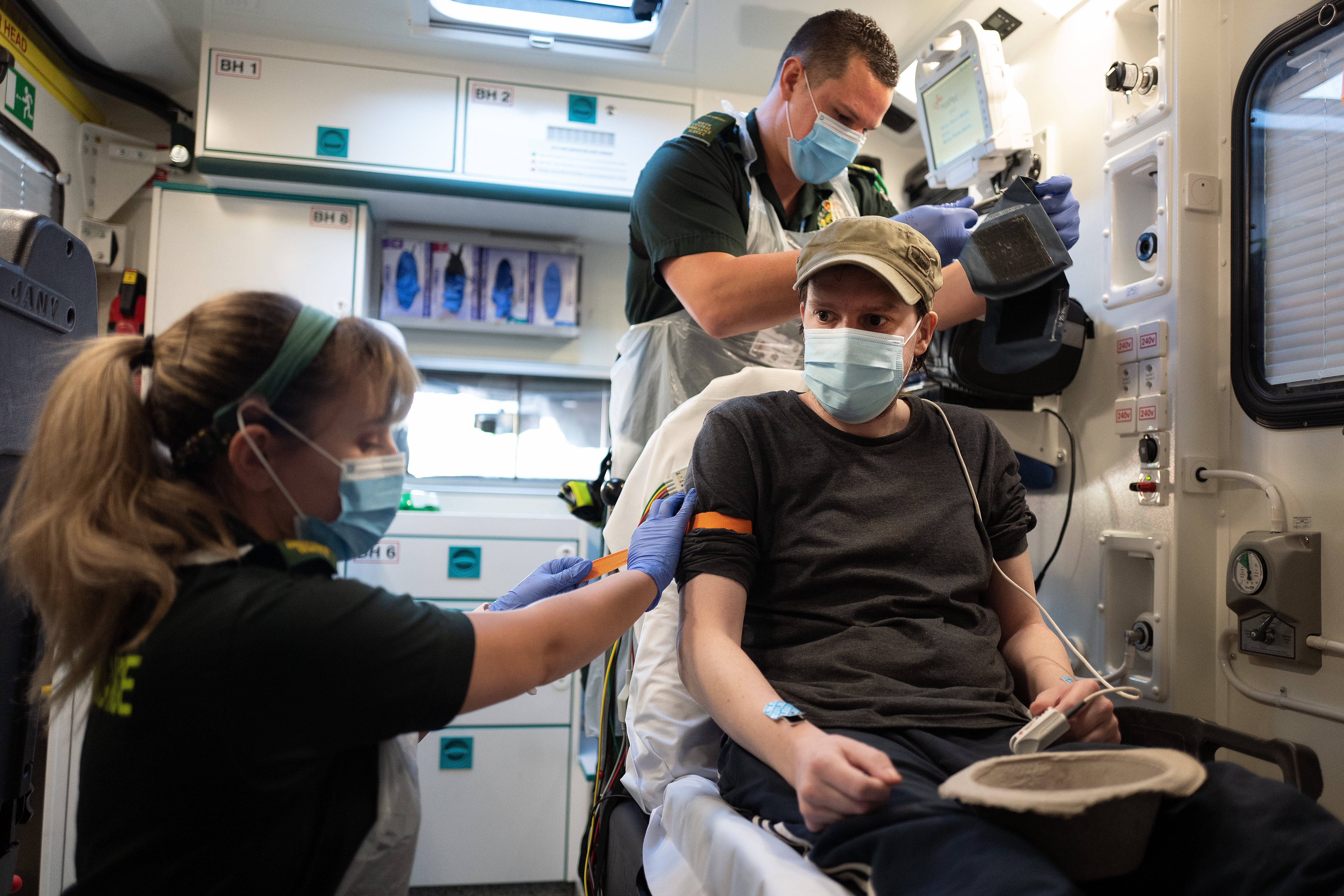NHS may have to care for ‘a million long Covid patients after pandemic’
About one in 10 with coronavirus could continue to have symptoms for several months

Your support helps us to tell the story
From reproductive rights to climate change to Big Tech, The Independent is on the ground when the story is developing. Whether it's investigating the financials of Elon Musk's pro-Trump PAC or producing our latest documentary, 'The A Word', which shines a light on the American women fighting for reproductive rights, we know how important it is to parse out the facts from the messaging.
At such a critical moment in US history, we need reporters on the ground. Your donation allows us to keep sending journalists to speak to both sides of the story.
The Independent is trusted by Americans across the entire political spectrum. And unlike many other quality news outlets, we choose not to lock Americans out of our reporting and analysis with paywalls. We believe quality journalism should be available to everyone, paid for by those who can afford it.
Your support makes all the difference.A leading doctor has said the NHS should expect to treat up to a million people for long Covid in the aftermath of the pandemic.
Long Covid affects about one in 10 people of any age infected with coronavirus, and sufferers can experience symptoms including breathlessness, chronic fatigue, brain fog, anxiety and stress for several months after contracting Covid-19.
The likelihood of experiencing long-term symptoms does not appear to be linked to the severity of the initial virus and people with mild symptoms at first can still have debilitating long Covid.
The absence of long Covid registers makes it difficult to measure the scale of the problem, and major studies into the condition are ongoing in an attempt to identify causes and potential treatments.
But one of Britain’s leading doctors, who spoke on condition of anonymity, estimates that about a million people will need care for long Covid as the NHS recovers from the effects of the pandemic.
“Although officially about 4 million people have had Covid, in reality, it’s about 8 million or 9 million,” the anonymous doctor told The Guardian.
“If 10 per cent of those people have got something, then it could be almost a million people, and that’s enormous.”
Professor Andrew Goddard, the president of the Royal College of Physicians, said it remains difficult to estimate the number of people with long Covid, but that it is “very likely” to place significant demands on the NHS.
He said: “From our latest survey of physicians that have had Covid-19 we know that 15 per cent have had symptoms that go on beyond six months but these are varied and have differing impacts on normal activities, ranging from mild changes in smell or taste, to debilitating breathlessness or fatigue that prevents them from working.
“It seems very likely that long Covid will place significant demands on the NHS moving forwards and given that many patients with long Covid did not get hospitalised and/or were relatively young, it shows the importance of vaccinating as much of the adult population as possible.”
The NHS is funding 69 specialist clinics across the country to care for people experiencing long Covid symptoms.
The clinics will allow people to access a range of services, including diagnostic testing to identify potential chronic health issues, and cognitive and psychological assessments.
Patients could also then be referred to specialist lung, cardiac, rehabilitation and mental health services.
But the boss of University College London hospital, which has already seen more than 1,300 patients at its specialist long Covid clinics, said it was struggling to meet demand.
Prof Marcel Levi, UCLH’s chief executive, told The Guardian: “It is fair to say that we are struggling to meet the demand of this patient group.
“We have a clear vision of the ideal pathway we would like to deliver. At the moment, we only have some of the components of that pathway in place, and it is something that needs rapid resource and focus to fill in the gaps.”
The Independent has approached the NHS for comment.





Join our commenting forum
Join thought-provoking conversations, follow other Independent readers and see their replies
Comments